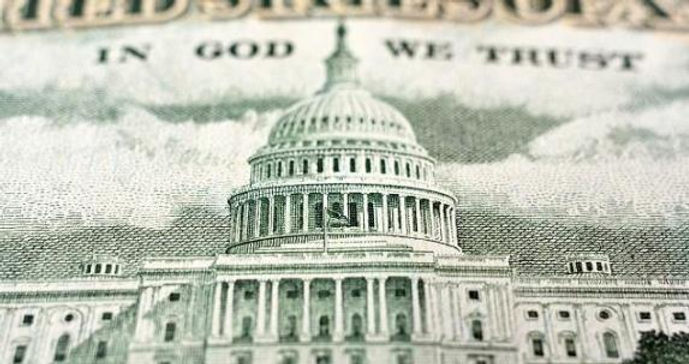In his first Unleash Prosperity Hotline of 2024 our friend Stephen Moore gave us a heads up about a stealth tax increase coming our way courtesy of anti-capitalist Democrats.

Steve pointed out a critically important pro-growth feature of the Trump tax cuts of 2017, just phased down yesterday – January 1, 2024. It’s a back-door tax increase that the Democrats hope no one notices.
As Stephen Moore explained, because of arcane budget rules, that 100% “expensing” provision gets phased out by 20% each year starting in 2023. This year, firms will only deduct 60% of their capital purchases and by 2026 they will lose the incentive entirely.
The 100% capital expensing provision was a crucial pro-growth tax incentive for American businesses — especially construction and manufacturing firms — that make critical capital investments in our economy. We are speaking of the provision of the Trump tax plan that allows businesses to immediately write off the cost of their purchases of everything from equipment, to machinery, to delivery trucks, to Boeing airplanes.
James Carter, a Senior Fellow at the Center For American Prosperity explained the pro-growth benefits of the 2017 Tax Cuts and Jobs Act this way:
Under expensing, an asset costing $100 gets an immediate cost allowance (depreciation deduction) of $100. Revenues are not taxable until they exceed the full cost of the asset. Future inflation has no effect on the value because the businesses can use the deduction right away. But under depreciation, even with no inflation, the present value of the deduction stream of a $100 investment in an asset with a five-year tax life is only about $92. At 3% inflation, the value of the write-off drops to $86; that is, $14 of the future revenue generated by the asset is taxed as profit, when in fact it is still merely covering the real $100 cost. At 5% inflation, the value of the five-year write-off drops to $82. At 8% inflation, the write-off is worth only $77, and $23 of the revenue stream needed to cover the asset’s cost is mischaracterized as profit and is subject to tax. For the seven-year asset, the write-off values on a $100 asset are $89 at zero inflation, $81 at 3% inflation, $76 at 5% inflation, and $70 at 8% inflation.
Thus, wrote Mr. Carter, allowing expensing to expire would sharply raise the cost of new equipment, thereby reducing the amount of equipment businesses can afford to maintain and employ. With less equipment in use, workers’ productivity and wages would be lower than they could and ought to be. Wages and salaries, which are the largest component of national income, track labor productivity closely. Workers are therefore the biggest beneficiaries of the rise in productivity, output and national income resulting from expensing. They would be the biggest losers if it were to expire. Expensing also benefits savers by raising the returns to saving, and it benefits consumers by reducing the cost and increasing the supply of goods and services.
Workers, savers, and consumers would not be the only losers if expensing were to end. Ironically, the government would lose too, because expensing is one of the very few tax reductions that boost economic activity enough to result in higher revenues down the road. By the end of the 10-year budget window, extending expensing permanently would lift tax revenues above the baseline forecast, due to higher wages and employment.
The bottom line?
Expensing capital purchases is one of the most important pro-growth provisions of the 2017 Tax Cuts and Jobs Act. Congress should have made expensing permanent, as soon as possible, to end the uncertainty and to keep investment strong. This was especially important as investment struggles against the headwinds of rising interest rates, high inflation, and a potential recession. It is good long-term policy, not just a counter-cyclical tool, and should become a permanent part of the tax code. Expensing reduces the cost of equipment and machinery and raises the capital stock, thereby boosting productivity and wages. It helps savers by raising returns, and it helps consumers by reducing costs and increasing supplies of goods and services. Expensing is one of the few tax reductions that increases GDP by enough to fully recover the initial revenue reductions by raising wages and output. It is a win-win step for all concerned.
Unfortunately, Democrats aren’t interested in any pro-growth policies, they see the tax code as a way to punish success and to redistribute income. So, with Democrats in control of the Senate the likelihood of restoring the 100% expensing rule, and the economic growth it engendered, is next to zero without strong grassroots pressure.
The Capitol Switchboard is (202-224-3121), call today and tell your Senators and Representative that you want the pro-growth expensing provisions of the 2017 Tax Cuts and Jobs Act have made permanent as soon as possible.
-
government subsidies
-
national debt
-
Expensing tax provision
-
Business write-offs
-
inflation
-
limited government
-
individual freedoms
-
individual rights
-
innovations
-
government regulations
-
small businesses
-
Joe Biden tax increases
-
wages
-
worker productivity
-
growth policies












